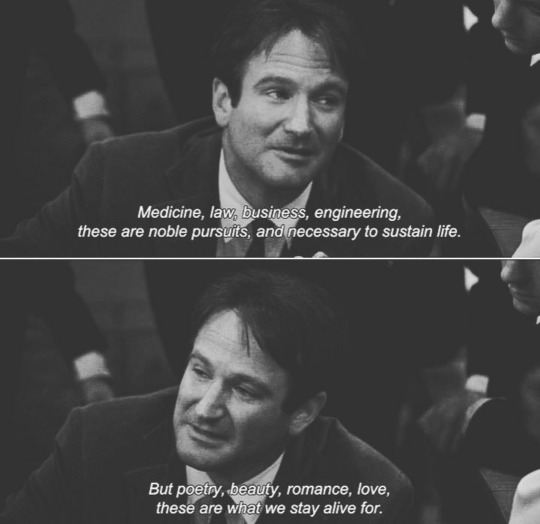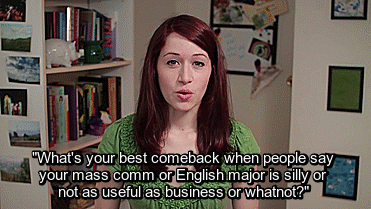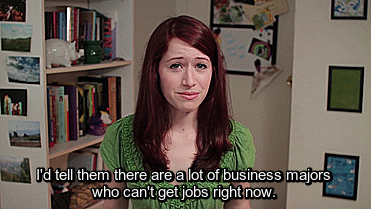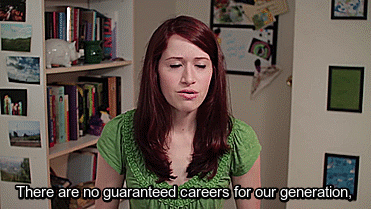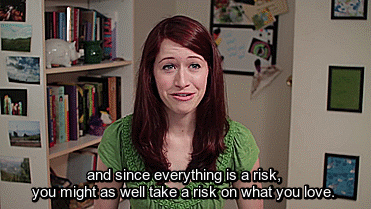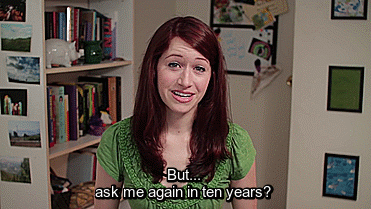Don't wanna be here? Send us removal request.
Text
i’ve mixed cranberry mikes harder and cucumber lime gatorade into a drink i like to call “the flavor” because like. you drink this shit and your tongue is like “there’s a taste here. you are experiencing a flavor” but when you go to open the door there’s no flavor there. it comes back with an undefined error in the flavor column. it’s the missingno of flavors. it so absolutely and definitely tastes like something and that thing is nothing.
115K notes
·
View notes
Text
fully sober in the club googling frankenstein 1818 full text
36K notes
·
View notes
Text
Lighting Round!
Pros:
Makes everyone speak
Covers range of topics
Reduces need for me to have good transitions (I struggle in my papers, and I struggle in life.)
Grading it would be so easy!
Cons:
I have to remember to assign it beforehand.

I had such a plan to assign them and do a follow up post on Monday after class to talk about it.
And then I stayed up until 3am grading short stories Thursday night and forgot to put it in the assignments for this upcoming week.
So...delayed but not canceled! Stay tuned!
Instead, let’s talk about PowerPoints.

I ran some numbers because I love any excuse to do math. (I said what I said.) I’ve noticed that when I have a visual aid like a PowerPoint, students talk more. Unfortunately *adding machine click-clacks* I do not have a greater number of students participating. My hypothesis was that giving them something to look at other than my pasty mug kept brains and eyeballs on the class content, but the data really let me down there.

I do find it both funny and validating that I am not the only person who uses my presentation materials to keep me on track. I am so bad about tangents. The downside of knowing your material and being passionate about it is that you can go off in any direction for an indeterminate amount of time. I will also just straight up forget points sometimes. I’m just kind of a mess without some sort of outline, and my PowerPoint is an outline with pictures. I’m teaching a course right now that compares several different forms of media, so my presentations are full of pictures and YouTube clips.
I definitely stopped uploading them to the LMS, though. Outside of the lecture/discussion, the slides are a bunch of random, bulleted words and some pretty pictures. They’re unintelligible on their own. (Shuman would be so proud of me.) I added presentation notes to one slideshow once before deciding that I really did not want to spend my time doing that. If a student misses class, the class meetings are taped and uploaded to the LMS server. They can listen to the explanation I gave everyone else.

Come for me if you like.
Also, “speaker notes” are a scam. They only work with projectors, and we all use screen share in 2021. Fix this, Microsoft.
#powerpoint#lecture#education#lms#discussion#notes#microsoft#help#make the computer do what i want#scam
2 notes
·
View notes
Photo

Note: The title is absolutely not in support of person first language. It was purely a stylistic choice. “Disabled students” is not incorrect or insulting in any way. Miss me with that ableism and erasure.
#disability#disabled students#ableism#identity first language#adhd#dyslexia#dyscalculia#asd#autism#deaf#blind#college#university#accessibility#anxiety#depression#ada#accommodations#flexibility#respect#education
73 notes
·
View notes
Text
Covid made me boring.
So....apparently I didn’t do the assignment “correctly” this week. We were only supposed to check for reading completion and nothing else?

The crazy thing is that I do give reading quizzes. It’s not even like I’m fundamentally opposed to it! I just......
That’s the lowest effort part of my job. I did not trust that it would be an acceptable response to an assignment.

So, here’s the deal.
I assign two things every class period, a reading quiz and discussion prep questions. The reading quiz is my metric for how many of the students actually did the reading. The results are occasionally baffling, but hey, we take the data and roll with it. I just need to know if I’m going to be rambling at blank faces who have no clue what I’m talking about.
But my brain didn’t want to make one of those. I wanted to do the other thing. The content stuff.

Okay, what are we reading? Why are these assigned together? I see rich images. I see common messaging. Let’s goooooooo.
I got excited. Sue me. In my defense, it is difficult to write about the main point of a reading without reading it. It’s not impossible, but if you get it wrong ... I’ve seen some things, man.
“But neither of those characters is married....” - me, fifteen minutes ago while grading

Not to disappoint Calder, but I’m not exactly reinventing the wheel. I often feel bad about not being “different” or “innovative” enough with my ideas for assignments and activities. I think I have decently interesting topics... I think?

I know it’s not my job to “entertain,” but it is my job to hold their attention and keep them interested. It’s a balance. Right? Oh, no, the turmoil again.
Does anyone else feel like this past year has just drained them of ideas? Ever since the globe went into crisis, I’m just constantly exhausted, and I’m struggling to come up with innovative ideas of any type. Assignments, research topics, nail art, all of it. I’m fried. I copied a line of swatches from Instagram onto my nails today. I’m so ashamed.
Is there any way to make life just stop for a little bit? Do I mean a vacation or a coma?

I think I need a nap and a sandwich.
2 notes
·
View notes
Text
Does being polite make you a simp?
Hello, and welcome to my Tiktok For You Page!

For reasons I completely understand yet resent, Tiktok loves to send me videos several layers deep in drama, and this week I got a big ol’ scoop of “”Nobody cares that the properly tagged non-con fic triggered you.”
And literally every response video I have been sent agrees, as do I. The tone of the original video was extremely rude, but dilftiddies had a point. (I can’t do anything about the username, guys. He calls himself what he calls himself.)

Now, I do not doubt that this video was prompted by an actual complaint. (Feel free to dig through the video comments if you really want to see the fic in question for some reason.) I do not doubt that there has been pushback against his statement. I also fully understand that anecdotal evidence is not the be-all-end-all and that my fyp is curated for my interests and opinions. Yet, as I scroll through his comment section, I’m only finding things like, “The only time you should be upset is if it’s not properly tagged. If it is, and you still read it, it’s your fault you read it not the authors [sic].”

Lukianoff and Haidt would have us believe that the world has gone mad with trigger warnings about “classism” and that the “reasonable person test” has gone out the window. I wonder if they realize that, to many social media users, they sound like this comment instead: “Triggered drama queens right now: ‘BuT wHAT wiLL I cOmPlaIN aBOUt??’”
There is this sense of a manufactured, ultra-sensitive “snowflake” student who has the emotional stability of a Fabergé egg. Do these authors find it exhausting going through life without the understanding that most people are reasonable? It sounds exhausting to me. Again, my personal experience is not the be all end all, but I am older than the world wide web, and I have yet to find any of these hypersensitive individuals in question.
What I have found are people who have reasonable explanations for being upset about things. I have also found people who don’t like being told to stop being rude. People who crack like an egg only tend to do so when they’re already going through some kind of health challenge.

Are there students who make unreasonable demands or unconventional demands without adequate explanation? I don’t doubt this at all. But I do doubt that it’s an epidemic that forewarns us of the collapse of society. I had a student recently as if he could - while in possession of the answer keys - redo all his quizzes. ...no, bro. Sometimes the students are just out of pocket. It happens.
Also, in polite society, we generally don’t bring up sensitive subjects without context or prompting. Without, I don’t know, let’s call them “warnings.” Disney+ tells me if a show is going to have violence or cussing in it before I put it on for my niece. When I get my Nexplanon replaced, my doctor asks if I want to see the incision before saying, “Hey, check this out!” It’s a pretty normal course of action in most of life to check someone’s comfort level.
Let me tell you a secret. Millenials didn’t always have this luxury.

For millenials and gen z, tagging upsetting content is not a matter of coddling. It’s a way of respecting others to responsibly manage their own consumption.
There was a time before trigger warnings, content warnings, moderation, terms of service, etc. There was an era of Limewire, Rotten.com, Newgrounds, etc. Quizilla had pornography at one point. Yes, a quiz website for minors which was eventually purchased by Nickelodeon was loaded with erotica. Before the age of fifteen I had seen death, violence, sexual deviancy, and all manner of crime and trauma. Most millenials had. A “prank” we used to pull on each other was to send a link with an innocuous URL and have the victim end up watching violent gore or pornography without consent.

We don’t want trigger warnings because we’re soft. We want them because we see Mr. Hands when we close our eyes at night.
We want them because we know what it’s like to be disrespected, and we don’t want to do it to anyone else.
0 notes
Text
I can’t make the horse drink.
I wonder what bell hooks (intersectionality queen) would think about me being open about being a hot mess at 20. I fumbled my way through high school and basically flunked out of college.

And - to an extent - I don’t hide it from my students.
They don’t need to know everything, but have you ever seen the tension release from an entire class of freshmen? I have. It was when I told them what I got on my SAT essays. (I took it more than once. I was in a really toxic competition with this guy in my AP classes. Yes, I was a mess in AP classes. Like Taylor said, “Long story.”)
Do I have the self esteem to call myself self-actualized? Absolutely not.

But I do feel like I have learned many lessons in my academic career that are valuable to pass on. I’m like a walking what-not-to-do. Any time I realize there’s the potential for a student to do something dumb, I can head it off with specific advice. It’s like Minority Report, but for procrastination and poor citations.
I love and respect the instructors I’ve had who go for the immovable-object-of-wisdom-and-perfection look, but guys, I have pink hair. I don’t think anyone would buy it.

I think the key is to make it clear that you’ve come out on the other side. “Yes, I was a disaster, but now I’m a super successful adult. That means you can do it too!” That’s what I’m going for.
When I started teaching I was warned that if I’m too open and approachable, especially as a young woman, people might take advantage of that, but under this fluffy, neon exterior lies a firm, somewhat bitter center that has absolutely no reservations about taking off points.

That noted, I do have to say that the discussion of Bob, our theoretical, thick-headed student has been living in my head, rent free for several days.
Bob doesn’t want to change his mind. Bob is firm in his convictions. Bob is the worst nightmare of that part of me that wants every student to achieve full comprehension and have an enlightening experience. Bob vexes me.
I told my girlfriend about Bob. She would like to stop hearing about Bob. I think she prayed for the first time in years when I announced my conclusion about Bob.

“Entering that classroom is entering into an agreement, for both me and Bob. If Bob doesn’t want to be open to learning things, why is Bob here? He’s not interested in fulfilling the contract. If Bob is in this classroom in bad faith, why does the onus fall on me to kill myself over it? Sure, I should have a few tricks up my sleeve to try and compel him. I taught math to people going through puberty. I have become the queen of dissecting faulty logic. But if Bob is determined to resist, I can’t achieve mind control.”
It’s probably not the ideal answer, but accepting Bad-Faith-Bob is part of my self-actualization journey.

#education#pedagogy#teaching#logic#growth#self care#example#grad school#school#bad faith#arguments#learning#kimmy schmidt#awkward
0 notes
Text
This debate always makes me think of this comic.

You asked why it’s always framed as an economic issue and not a civic issue, and I think it’s because it is.
You can check out my latest post for my fuller feelings on this system, but have you ever read about what happened with Mussolini and Montessori education? He wanted to make it the official education system of Italy because Maria Montessori was Italian, and fascists are all “Grrr, national pride!” But then he realized, “Oh, crap. This system makes terrible fascists.” None of the teachers would cooperate, and Maria had to flee the country.
If you want a country of people who will be good little homo economicuses and will violently embrace the status quo, an education in the humanities is your worst nightmare. It flexes intellectual muscles that you don’t want people using.
So it is absolutely an economic threat for those in power. Bills that “help people” aren’t bills that let donors stay rich.
DEHUMANIZED: When Math and Science Rule the School
Today in class I had the opportunity to “teach” an article with the above title by Mark Slouka. It is biased and filled with imagery and provoking language. All of these things I have been taught to avoid by the history students of today. This is definitely in an attempt to make our writing more scientific, but that does not mean that this article did not hold truth within it. The basic idea is that the humanities are slowly being strangled out of existence as the US culture pushes for a production of workers rather than students. A lot can be said about this and I had many questions I wanted to ask my classmates that I did not get the chance to because of the time limit, but ultimately Slouka states that the humanities have hard-headed and un-budging base within them. There are people who refuse to be wiped away and thrown into a world of business and sciences. They create their own ecosystems around them and the fruits of their labor may not be immediately quantifiable, it does provoke thought and challenge the status quo over and over again.
I would like to post some of the questions I wanted to ask here and see what others believe about it. The top one is: Why is every crisis in the American Education system cast as an economic threat but never a civic threat? How can we describe a civic threat? All of the conversations I’ve had about issues in the education system talk about the detriment to funds and whether or not something is worth being kept on to save a budget. What is a civic threat and why is it never addressed? I believe that in the world of politics we are slowly beginning to address such a question by posing the statement “Stop asking if bills are bi-partisan and start asking if they helps people.” - Sarah Groh from Twitter

Perhaps this can be how we start addressing the detriment to the American Education system in terms of civic threats. Start asking what happens to the students of classes are taken away and maybe we can find a balance between the economic threat and a civic threat.
None of this is to say that STEM does not have its place and that people cannot be happy taking this course of action in their education. All it is trying to argue that the humanities create a space where conflict and humanization are rolled into one. The conflict that the humanities present to the world can create a better and more ethic society. As the STEM and technical fields increase, I do believe that the humanities should grow with them instead of being something that have people asking “well, what are you going to do with that?” In order to get to this point where the humanities and sciences are on the same footing in society some challenging of social norms and fighting are likely going to have to occur. That’s just my opinion though. I’d like to hear thoughts from others!
10 notes
·
View notes
Text
What’s the Point II: Electric Boogaloo
First off, I never want to work in administration. I wanted to teach and write, not explain why we should pay for things.

!RemindMe in 5 years when I have a mortgage and kids.
Now for a complete pivot.
“A Mathematician’s’s Lament” gave me emotions. Apparently Lockhart expanded this into a whole book. I might buy it over break and upset myself further. I think I need to break this down into parts.
Why Do You Need to Know the Quadratic Formula?
One of the more surreal things I’ve experienced more than once is finding out that a student didn’t realize that the equation they needed for their homework was listed in the section of the book associated with the homework questions. You know how sometimes someone asks you a question, and you don’t know how to answer that question without the person hating you because there is no tone that will soften how blunt you need to be? Yeah.
As it is, K-12 math functions as a place to practice certain skills that are just really easy to teach in the context of arithmetic. Seeing a situation, identifying the problem, identifying the formula or algorithm needed to solve it, identifying the relevant data, and executing the algorithm. That’s the juice. (I grew up in the 90s. Leave me alone.)

It’s like the textual analysis hill I will die on. Kids need to know how to do that. I’m sorry if Dr. Lockhart doesn’t like his beloved math being used for that, but I love her too, and she’s a big help here. He talks about how horrifying it would be to reduce fine arts education in the same way. Um...fine arts education is just being eliminated altogether. And as a musician, I am 100% fine with music being reintroduced to the public school curriculum as a way of teaching children pattern recognition, listening skills, and dexterity. Bring it on.
Pythagoras is the Real Bean Dad
My hot water heater ruptured a couple years ago. Went boom. Leaked everywhere. Mushrooms grew. Girlfriend and cat went through the rotted laundry room floor.

My father decided that it was my fault because I, a new adult who has never been in charge of a free standing structure before, did not keep an eye on something that I didn’t know needed keeping an eye on. It was the prequel to Bean Dad.
This is why I get nervous when people like Lockhart start talking about letting children’s “natural curiosity” direct their educations. You can’t get curious about things that you don’t know about yet. Any productive system is going to involve some amount of direction and deliberate introduction of topics. I can’t avoid making a connection between this approach and the Montessori method. It sounds beautiful in theory - until a child who should be reading can’t even spell their name yet.
I don’t love this anti-structure trend that I keep seeing. Actually, as an autistic person, I abhor it. For the most part, we love structure. We want it in an IV.

Curious people will be curious about things. We will be curious about things you show us. We don’t have to stumble into something to be interested in it. You just need to tell us the interesting parts. Show the kids how to derive the quadratic formula! Tell them about Pythagoras’ bean cult! Tell them about the time NASA forgot to double check their units and murdered millions of dollars in equipment!
It’s Not Even “Math.”
“You guys don’t even do math in high school.” This is one of the truest things I professor has ever told me.

It’s not math. It’s arithmetic. And I’m comfortable with that. I said earlier what I feel students can get out of a well-managed education in these matters. Should we rename it? The part of me that likes to be precise says yes. The part of me that is practical and just wants to let language evolve naturally says no.

#education#math#mathematicians lament#lockhart#montessori#im here to start fights#autism#aspergers#pedagogy#bean dad#language#music
0 notes
Text
You’ve inspired an annoying hot take, so apologies in advance.
I’m finding it more and more distressing that the university system assumes that content producers and content disseminators should be the same people. Yes, somebody who is making headway in a field will have intimate knowledge that they can pass on to learners, but that doesn’t mean they can necessarily teach worth a whit. Also, teaching material can give you plenty of practice and insight that can allow you to move forward with research. But we’re forcing the overlap instead of letting it happen organically. Most full professors are teaching both graduate and undergraduate courses, and as you’ve noted here, those can be two wildly different tasks.
A lowly grad student myself, I have no economically viable solution to propose at the moment.
What is the Point of a Teacher?
I was quite intrigued by the article I read for class last week that asked a question I’d never really considered before: what is the point of a teacher? I get annoyed when I hear people say teachers are ‘nothing but glorified babysitters,’ but Barre’s op-ed really got my wheels turning. What is the point of a teacher? If humans can learn on their own, why do we assume a guide is necessary in formal education? I think Barre’s explanation of the two types of teachers answers the question well.
The teacher-as-author and the teacher-as-tutor are two common types of educators, especially on the college campus. While Barre finds both models to be useful in some aspect, I disagree. I believe the teacher-as-tutor is the only true way to teach, particularly if the course is below the graduate level. The difference is that the teacher-as-author is an academic while the teacher-as-tutor is an instructor. There is certainly value in academics and their roles in the bubble of academia, but often the two roles are conflated when really, the academic is there to provide access to knowledge, rather than to make sure the student absorbs it.
As a graduate student, I see benefits to learning from academics. In our classes, most of the learning is self-facilitated and the professor is there to provide guidance and correction. At anything below the graduate level, however, the students expect and should receive an instructor. This person should be equipped to ensure students achieve growth and advancement, not just to provide access to knowledge.
#education#pedagogy#instructor#teacher#academic#college#grad school#writing#hot take#rant#university
9 notes
·
View notes
Text
What is the point?: Let’s start 2021 with an existential crisis.
Story time.
I teach a liberal studies class that I didn’t even take when I went to this same school. (I tested out with AP credits.)

So on the first day of class this semester, I asked my students why they were taking this class. I made it clear that “because I have to” is a completely acceptable answer. They did not disappoint in that category. In all fairness, that’s how a lot of my liberal studies and elective classes were picked as well.

Then it was my turn, and I had a far more articulate, thought out answer because I had the unfair advantage of knowing that the question would be posed ahead of time.

I teach post-secondary literature because storytelling is built into the human brain. It’s a universal activity. And in standard college prep K-12 we get taught all of this mainstream, pre-formulated literary theory. Now, that is absolutely necessary - to prepare you for the next step of then doing your own analysis.
We have to analyze stories all day long because of the aforementioned built-in story mode we have, whether the story is a movie plot, where your boyfriend says he was last weekend, or whether there are space lasers aimed at California. If you can’t process that information, you’re screwed.

Now, if we turn to my inner self, you will find not a confident woman of letters, but rather a terrified millenial who remembers when Tom sold MySpace for $580 million and still can’t believe that people give her money, actual US currency, to guide people in an activity that is overall beneficial but does not 1:1 correlate with a skill you’d find on an Indeed.com listing.

Yes, you are becoming a more complete human being with your gen ed requirements. Yes, you will be a far less insufferable employee and coworker. Good luck spinning that in your interview. I might have to turn you over to the Comm people for that one.
And what am I even doing? Modeling and giving opportunities for practice. Employing Socratic questioning. Exposing students to new things.
Hold on. I’m actually talking myself down. Cool.

I’m about to tell on myself a little bit. That Baurlein article? The angsty one bemoaning the loss of the idealistic, probably-never-all-that-real, mentor-mentee relationship? I feel that. I have a lot of difficulty with interpersonal relationships (unexpectedly deep moment), but man if I didn’t wish for more direct guidance in how to become what I wanted to be.

I was a little bit ready to throw hands with Drezner at the beginning of his rebuttal.
But he’s right. I know he’s right. The demographics have shifted, and we live in a very different social and economic landscape. It feels like the BA is the new high school diploma in a lot of ways.
Tiny digression: I found a job listing for a secretary position that required a BA and said something like “top 20 university preferred.” I died laughing and saved it. I’ll post it if I find it.
In our current world, post-secondary education is utilitarian, not a leisure activity. I remember reading The Help and being floored that girls would walk away from a university education to just get pregnant and organize toilet donations.
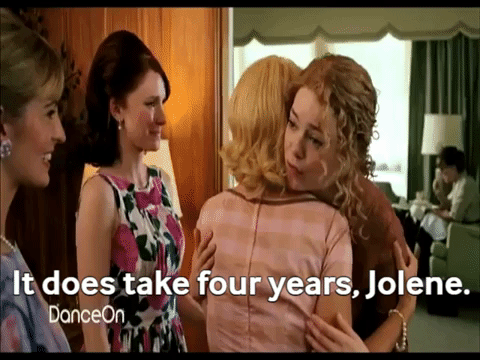
I just found out that my late grandmother went to college. If that woman ever had a job, I was never told. Meanwhile, in the year of our Lord 2021, I’m hyperventilating at the prospect of not immediately finding a job in my field. (CPCC, call me!)
My father is suggesting I learn computer coding. My mother keeps asking if it’s too late for med school. ($300 and four hours of my life “wasted” on the MCAT.) A lot of people theorize that my generation was the last one that went to college out of any sort of optimism. It’s bleak! I understand why I’ve got these kids reading Jane Austen purely out of obligation.
John Mulaney is not helping, by the way. (4:25 is your relevant clip. It stings.)
youtube
And after they read it, presuming they don’t lie to me and just Spark Note it, are we having a deep, meaningful conversation about the language and themes? Sure, if you consider an intimate gathering to be your thirty closest friends. Especially if only like three of those friends are chatty, and they’re all trying to talk to you instead of each other. In that context, the British mentor system described by Barre is a dream [and a source of anxiety (interpersonal difficulties, remember?)].
Every one of those anxious party guests has their own way of learning as well. Will I ever learn a Rubix cube by watching someone solve it or by reading an explanation? Absolutely not. I can make that unequivocal statement right now. I have to hold it, and I have to do it myself. But I still need a teacher. I just need the teacher to give me the steps and then step back and let me make a mess of the cube for a bit, step in if I’m going way too far in the wrong direction. The teacher is still necessary, though.

Maybe we need to go back to the one student, one teacher model. Like the Sith. That would really drive up tuition prices, though....
2 notes
·
View notes
